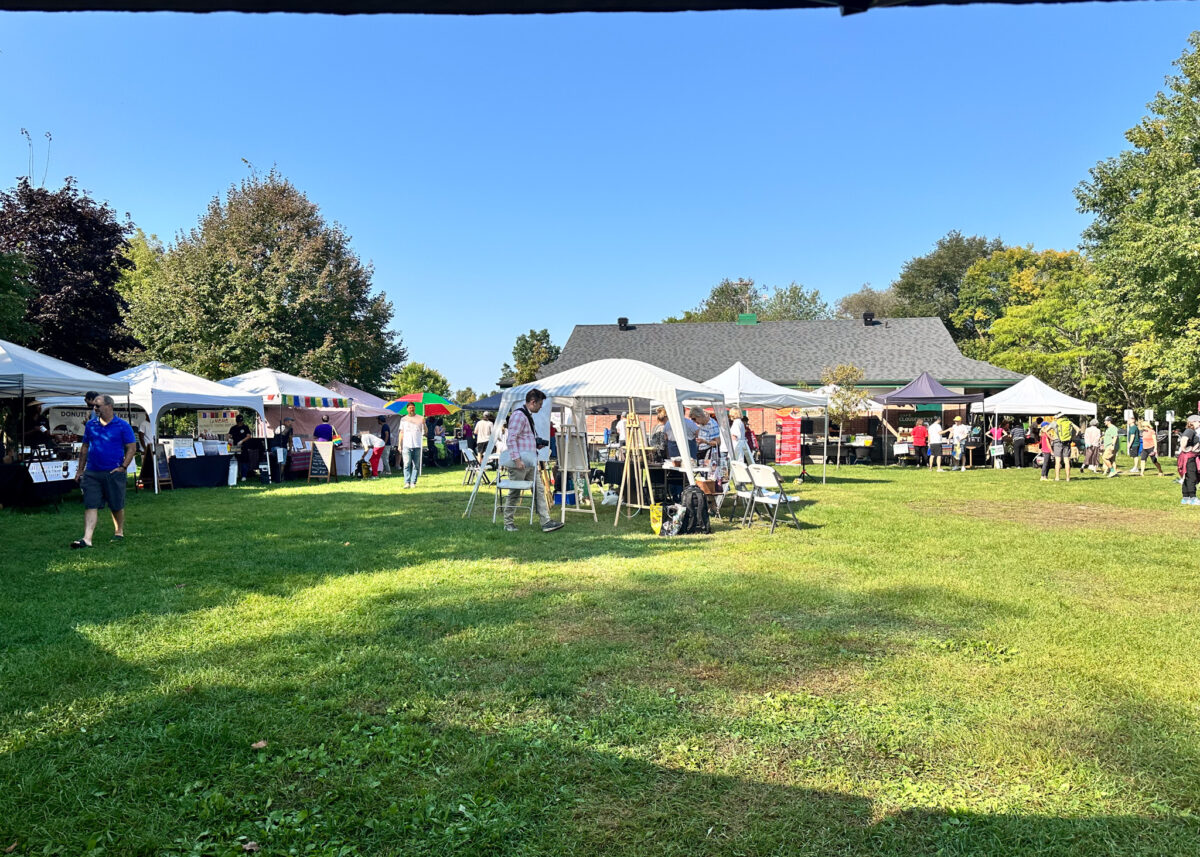Amid the Canada-U.S. trade war, it’s become common to see “Product of Canada” highlighted on grocery store shelves as the “buy local” movement takes hold in the country.
As a result of the tariff battle begun by U.S. President Donald Trump, many Canadians have prioritized filling their carts with home-grown products to avoid paying increased prices for items imported from south of the border.
Michaela McFater, a third-year student at Carleton University, is one of many shoppers now focused on buying Canadian.
“For packaged stuff like bread and things, shopping Canadian is important because it supports Canadian brands and oftentimes can be a bit of cheaper price,” said McFater.

Although buying Canadian has become a recent phenomenon for many, Ottawa Street Markets president Chris Penton said he’s been preaching it for years.
Ottawa Street Markets is a local business that sets up vegetable stalls and other booths at Beechwood, Alta Vista, and Elgin locations between June and October. It also offers an online pick-up service year-round. The business also has a year-round shop, Farm Store, located at 1805 Gaspé Ave., in Manor Park.
Penton started with the Beechwood location 11 years ago. In the beginning, he worked with the Vanier Community Association as part of an effort to foster a sense of community in the area.
After a failed bid for city council, Penton said he decided to take a leap of faith and make the outdoor market his full-time job.
“It was just a lot of fun, and I kept doing it because I enjoyed doing it,” said Penton.
Penton now has a small crew working for him and dozens of vendors signed up each year for OSM’s seasonal markets. Penton says he has 25 vendors at the Beechwood location and 10 to 15 at the Elgin and Alta Vista locations.
“We never want to be too big because I feel it loses something — a little bit allure, a little bit of atmosphere,” said Penton.
To help with the ambience of the outdoor locations, Penton invites musicians to perform at the markets. He also has community tables set up for groups, such as the Girl Guides and the Ottawa Stray Cat Rescue, to promote their work.
The Ottawa Street Markets receives around 15 to 20 online orders per week when the outdoor markets are not operating between November and May. Penton says the number of online orders plummets the second they open up for the outdoor season from June to October.
During the COVID-19 pandemic, Penton says the business received 70 to 100 orders a week in the off-season months.
Natali Harea, owner of Nat’s Bread Co. in Carlington, began collaborating with Penton in 2020 as a vendor for the online market. She has continued to work with him during the outdoor market season and at the Farm Store.
If we want these cool and unique businesses and events to remain accessible for us and our families, then we need to change our shopping trends and make visiting and supporting them part of our daily or weekly routines.
— Natali Harea, owner, Nat’s Bread Co. in Carlington
“We happily joined and have been growing alongside him and joining his additional endeavours since then,” said Harea.
The long-term vision for Ottawa Street Markets is to have onsite and online pickup locations in a dozen neighbourhoods this year. “The future is in our communities, and Ottawa Street Markets is here to help create something exciting, accessible, and sustainable,” the company states at its website.
For Penton, supporting local business is very important, and he says now — at a time of great tension with the U.S. — it’s crucial to keep small, local businesses running.
“If they disappear, you’re going to be fighting off crowds on a Tuesday at 7 a.m. at Costco,” said Penton.
Penton believes there is a strong misconception that shopping locally means having to buy more expensive products. However, he says buying locally does not equal breaking the bank every time.
“My go-to line is, ‘Yeah, a homemade bar of soap made by a lady out in Kanata is going to cost more than Zest, but we can play with our overhead to keep a hot house cucumber cheaper than Loblaws.’ In the summertime, I can keep my broccoli the same price as you find in a grocery store,” said Penton.

Harea says she believes supporting local businesses is the best way to improve your local economy and community. Many people don’t visit farmers’ markets, she noted. However, people can still contribute to the economy by buying Canadian at grocery stores instead of purchasing imported products.
“If we want these cool and unique businesses and events to remain accessible for us and our families, then we need to change our shopping trends and make visiting and supporting them part of our daily or weekly routines,” said Herea.
According to Penton, the best way to shop local is to get to know the business owners in your community. He suggests asking where they get their supplies from and the passion behind their business.
“With a small business,” said Penton, “you’ll be able to talk to the owner or someone in close relation, so see what challenges they have and how you can help, see where they can their stuff from and their plan for the next five years. Get to know the businesses and the people.”




